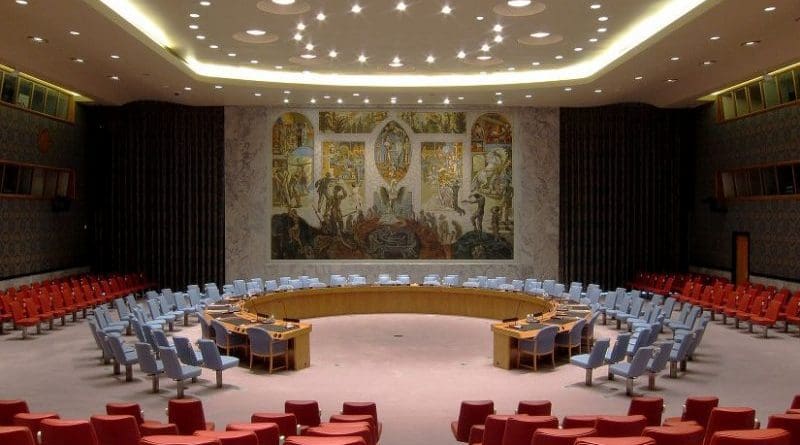Restructuring The UNSC – Analysis
By Observer Research Foundation
By Hari Bansh Jha
Immediately after the end of the Second World War, the United Nations Security Council (UNSC) was formed in 1945 to maintain peace and security in the world. However, since its inception, the global order has witnessed significant shifts: A significant rise in the number of UN member countries after decolonization; a shift to a multipolar world from a bipolar one; a population explosion, from 2.2 billion to nearly 7.7 billion, amongst others. Despite these changes, the structure of the UNSC largely remains unchanged. It continues to have five permanent members (P5)—China, France, Russia, the United Kingdom (UK), and the United States (US)—and 10 non-permanent members, as it continues to sideline Africa, Latin America, and Asia.
Over the years, voices have been raised against this structure by South Asia, Africa, and Latin America as they remain underrepresented and are unable to participate in addressing global concerns such as the arms race, climate change, multi-polarisation of the world, rise of new power centres, globalisation, terrorism, human rights violations, refugee crisis, amongst other growing global concerns.
India’s bid to UNSC
Amongst all the aspirants who want to be a permanent member of the UNSC, India is the most vociferous one. It went from being a country of “snake charmers” to a major global power centre. Its membership bid rests on the fact that it is one of the founder members of the UN, currently serves as a non-permanent member, is the largest democracy, is the second most populous country, and the fifth largest and fastest growing economy. Aside from this, it has also contributed
Moreover, India has been actively engaging itself in all the forums concerning climate change, sustainable development goals, millennium development goals, and other UN Summits. India also represents the interests of most of the underdeveloped and developing countries of the world. Its adherence to the principle of non-alignment and conviction in Panchsheel— Five Principles of Peaceful Co-existence—that focuses on non-interference by one country in the internal affairs of the other has substantially promoted peace and stability in the world.
For the UNSC to reflect the present geopolitical realities, India believes that the UNSC, along with other international institutions such as such as the World Bank, International Monetary Fund, and the World Trade Organisation, require a structural revamp. To strengthen its stand for reforms in some of these multilateral forums, India, of late, has been aligning with multilateral groupings such as the IBSA (India, Brazil, South Africa) and the G4 nations (Brazil, Germany, India, and Japan).
India intends to be a global rule-maker, and, therefore, wants to be a member of the expanded UNSC permanent category to have a greater say in the emerging international order. However, owing to the lack of consensus among the P5 members of the UNSC, India has so far remained excluded from UNSC permanent member category.
China: A stumbling block in India’s path
The problem for India, Africa, and Latin America is that they cannot be part of the permanent body until a consensus is built among the P5 for its reforms. The veto power equips the P5 members with the power to block the entry of other countries into the UNSC.
Among the five permanent members of the UNSC, four countries, including the US, UK, France and Russia have bilaterally extended their support for India’s candidature to the permanent seat in the expanded UNSC. However, China has obstructed its inclusion. Countries such as Pakistan, North Korea, and Italy, which are China’s close allies, have also been opposing India’s candidature for permanent membership in the UNSC. To sideline India, China instead proposes the inclusion of small and medium-sized countries.
Despite some of these challenges, the Government of India has accorded highest priority to its stand on getting a permanent seat in the expanded UNSC. To get the international support needed, it has been actively raising this issue in all important bilateral and multilateral forums. It has enhanced its engagement with the reform-oriented countries in the G-4, as they are also aspirants for permanent member of the UNSC; and with the L.69 Group—a cross regional group of countries from Asia, Africa, and Latin America.
Expansion of the permanent and non-permanent bodies is long overdue; they must include countries such as India, considering its geographical size; enormous population; economic growth; democratic system; political stability; soft, military, and nuclear power; apart from its undisputed role in South Asian affairs. Reforms are also necessary to make the UNSC more legitimate, effective, and representative in character and also to correct historical injustices in South Asia, Africa, and Latin America.

